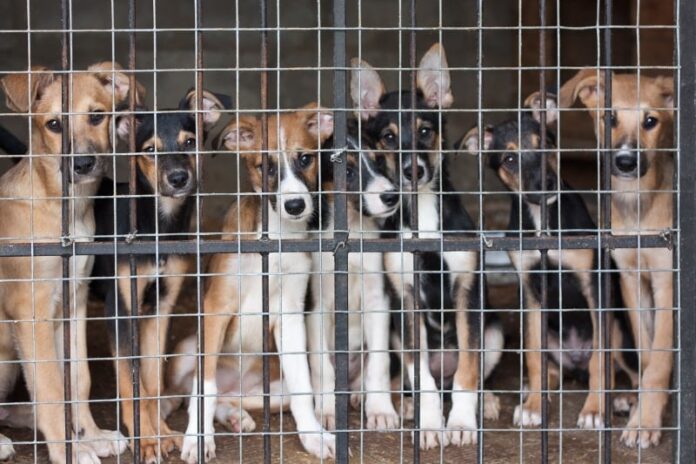 Animal welfare advocates are pleased by the results of the 2019 General Assembly, which increased penalties for animal cruelty and mandated that pets receive more room to roam if tethered outside.
Animal welfare advocates are pleased by the results of the 2019 General Assembly, which increased penalties for animal cruelty and mandated that pets receive more room to roam if tethered outside.
“Overall, this year’s General Assembly brought significant victories for Virginia’s dogs and cats,” said Matthew Gray of the Virginia Humane Society.
One of the standout bills was SB 1604, also known as “Tommie’s Bill,” which increases the penalty for animal abuse from a misdemeanor to a Class 6 felony.
The legislation, sponsored by Sen. Bill DeSteph, R-Virginia Beach, gained local and national attention and support after a pit bull was intentionally set on fire in February at a Richmond park. The dog, Tommie, eventually died from his injuries.
DeSteph’s bill and a companion measure in the House — HB 1874, introduced by Del. Margaret Ransone, R-Westmoreland — easily passed both the House and Senate and now await the governor’s signature.
Del. Robert Orrock, R-Caroline, successfully sponsored two animal-related bills:
- HB 1625 clarifies the definition of adequate shelter to protect an animal from heat or cold. The new definition says the shelter must be “properly shaded” during hot weather and have a windbreak during cold weather.
- HB 1626 gives animal control officers permission to confiscate any tethered cocks that are being used or suspected of being used for animal fighting.
Orrock also introduced HB 1827, which said that animals tethered outside must have a tether four times the animal’s length or 15 feet long, whichever is greater. That bill cleared the House but was killed by a Senate committee.
According to the Humane Society, Virginia remains in the top tier as it relates to state animal protection laws, but several animal rights activists say Virginia can do more. For example, state officials should address the issue of tethering, said Tabitha Treloar of the Society for the Prevention of Cruelty to Animals.
Sen. Lionell Spruill, D-Chesapeake, introduced a bill similar to Orrock’s tethering proposal in the Senate. SB 1025 passed after revisions and is on Gov. Ralph Northam’s desk.
It would require tether lengths to be at least three times the size of the animal or 10 feet long, whichever is greater. The bill would also prohibit adding weights to the end of the tether. Farm animals would be exempt from the tethering provisions.
Although the bill is not the big win animal activist hoped for, Treloar said it is a step in the right direction.
“We think this is going to provide additional clarity to the animal control officers who are responsible for enforcing code around the state, and we are glad we could come to a compromise,” Treloar said.
Also during the legislative session that ended Feb. 24, the General Assembly passed SB 1675, sponsored by Sen. Bryce Reeves, R-Fredericksburg. It would mandate a minimum six-month imprisonment sentence for anyone who maliciously kills or injures any law enforcement animal. The punishment would be separate from and run consecutively with any other sentence.
Animal testing was another issue brought up this session. Sen. Jennifer Boysko, D-Fairfax, proposed SB 1642, which sought to prohibit cosmetic manufacturers and suppliers from producing and selling any animal-tested cosmetics. This bill also would have authorized civil actions against violators, with penalties of up to $5,000.
“Animal testing for cosmetics is cruel and unnecessary and is deeply unpopular with the public,” Boysko said. “My bill aimed to ensure that animals are not harmed for cosmetics sold in Virginia, thus meeting consumer demand, saving animals and helping the U.S. match global progress on this issue.”
Boysko’s bill passed the Senate, 22-18, but was killed in the House Committee on Agriculture, Chesapeake and Natural Resources.
Adrian Teran-Tapia / Capital News Service

